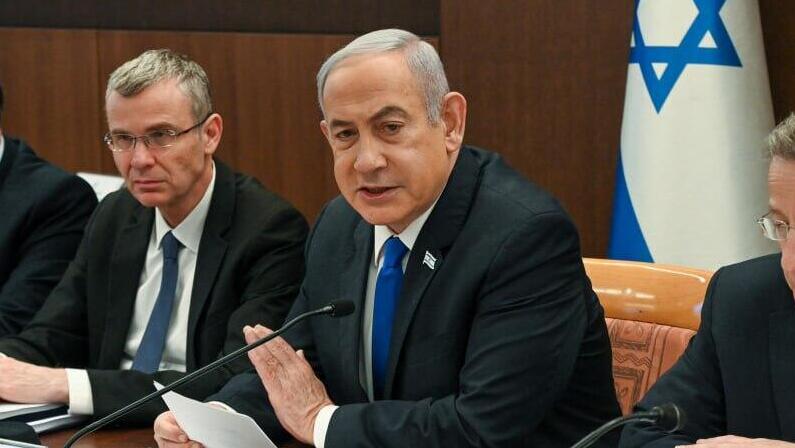Getting your Trinity Audio player ready...
Qatari Prime Minister Mohammed Al Thani said on Wednesday that his country was "reconsidering" its role as a mediator between Israel and Hamas in negotiations for a deal to release the 133 Israeli hostages held by Hamas in the Gaza Strip, since the role "has been harmfully exploited by certain politicians for their private interests."
Al Thani didn’t name anyone but Doha had criticized Prime Minister Benjamin Netanyahu on several occasions in recent months - and at the same time was on the receiving end of criticism from Israeli government officials and lawmakers.
Qatar's critics claim the Gulf nation has not been an fair and impartial mediator since it maintains close ties with Hamas and is responsible for its financing. On the other hand, Qatar said its funding of the Gaza terror group, was at Netanyahu's behest.
Earlier, Al Thani said the negotiations for a deal were in a "sensitive spot," and a senior Arab diplomat told NBC that the talks were "almost completely frozen."
"Qatar funds Hamas and provides political asylum to the heads of terror organizations in its territory, so it’s no wonder that it was involved in the negotiation’s failure while blaming Israel,” Economy Minister Nir Barkat said. “Qatar is a wolf in sheep's clothing. The world should declare Qatar a terrorist state and isolate it - just like Iran," he added.
Meanwhile, Hamas blamed the fact the United States "fully adopted the Israeli position," as the reason for the lagging negotiations and added, "This American behavior won’t lead to a deal but will escalate the situation and lead to more bloodshed."
Israel, on the other hand, refuses Hamas's demand to commit to a complete stop to the fighting as part of the deal and is only willing to agree to a temporary cease-fire. Another obstacle to the deal is the plan to return Gazans to the northern Gaza Strip, which has not yet been decided on.
An American official commented on the deadlock in the negotiations, saying, "The negative dynamic that has emerged needs to be changed, not abandoned." Meanwhile, Israeli officials are disappointed with the line led by the United States vis-a-vis Qatar. "We didn't expect much from the Qataris, but we did from the Americans - and they’re not pressuring Qatar enough," an Israeli source said.




